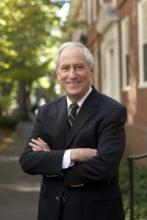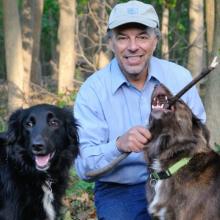High Performance Computing (HPC) Bootcamp
Tue, Sep 13 2016, 9:00 AM

Big data can be considered any data set outside the scope of a person to adequately process and interpret. Many fields study existing data or data generated via collected, research study, or clinical information. However, students and faculty in English or History or Classics or Law may be interested in querying larger portions of the total textual product of humankind, sets of thousands of texts rather than dozens. Statisticians or Political Scientists or Medical Professionals may be interested in several decades worth of aggregated insurance information or voting records or medical information (textual or image-based).
What Have We Learned About Culture, Disadvantage and Black Youth?
Wed, Sep 14 2016, 4:30 PM
A substantial minority of black youth suffer major disadvantages in America–racism; ghettoization; poverty; high drop-out, unemployment and incarceration rates; violence and policy brutality — yet are among the most culturally creative and influential groups in the nation. Social scientists have had only limited success in explaining their plight and their paradoxical role in America’s popular culture, largely due to the reluctance to consider cultural factors. In his talk, Orlando Patterson, John Cowles Professor of Sociology at Harvard and recipient of the 2016 Anisfield-Wolf Book Awards Lifetime Achievement Prize, will explain the reason for this reluctance and propose an interactive approach to an understanding of these problems, one that sees culture as a dynamic process that operates interactively with socio-economic and environmental forces in accounting for both negative and positive outcomes.
Humanities@Work: Sports
Mon, Sep 19 2016, 6:30 PM

Location: Clark Hall Room 206, 11130 Bellflower Road
Panelists discuss how studying the humanities influenced their careers. Panelists include:
Amy Backus (Central Michigan University ‘79) majored in education with a minor in English. She is Director of Athletics and Chair of Physical Education at CWRU.
Wonder Woman Symposium
Fri, Sep 23 2016, 3:00 PM
Babes in Arms
During World War ll, when the young men left their jobs to fight overseas, women took their places: in the factories, driving trucks and buses, building and flying planes — and in comics. More women than ever before were drawing for comic books, and what they drew were beautiful courageous women who fought the Axis and didn’t have to be rescued by some guy. In her talk, cartoonist and historian Trina Robbins, introduces four of those women, who fought the war with ink and paper.
2016 Walter A. Strauss Lecture – Censors at Work: How States Shaped Literature
Tue, Sep 27 2016, 5:00 PM

The difficulty with the history of censorship is that it looks so simple: it pits oppression against freedom of expression. But if one looks harder, it appears more complicated—and full of surprises. How did censors actually do their work? How did they understand it? And how did it fit into the surrounding social and political context? In his lecture, Robert Darnton, Pforzheimer University Professor and University Librarian Emeritus at Harvard, will discuss how by studying the day-to-day operations of censors under three authoritarian regimes—Bourbon France in the eighteenth century, British India in the nineteenth century, and Communist East Germany in the twentieth century—it is possible to rethink our understanding of censorship in general. This lecture, in memory of Walter A. Strauss (1923-2008), who was the Elizabeth and William T. Treuhaft Professor of Humanities, is generously supported by funds provided by the Paul Wurzburger Endowment.
New Light on Old Papal Rome: Recent Finds from the Archive of the Boncompagni Ludovisi
Fri, Sep 30 2016, 4:30 PM
The focus of this talk is the 2010 discovery of archival material that sheds unexpected light on centuries of Boncompagni Ludovisi family history, including the pontificates of Popes Gregory XIII and Gregory XV, and the development of the famed Villa Ludovisi, an enormous private enclave on the Pincio hill in Rome that was for centuries a “must see” stop on the Grand Tour. In 2013 and 2014, T. Corey Brennan, Associate Professor of Classics at Rutgers University, coordinated the first comprehensive videography of the Villa grounds and its spectacular interior spaces, footage that is also featured in his wide-ranging lecture.
2016 Issa Lecture: Beyond Words; What Animals Think and Feel
Tue, Oct 4 2016, 5:00 PM

Location: Tinkham Veale University Center, Ballroom C, 11038 Bellflower Road
Does your dog really love you or does she just want a treat? Long thought to be beyond reach of inquiry, Carl Safina, marine ecologist and author most recently of Beyond Words: What Animals Think and Feel, will discuss how animal thought and emotion can be considered by looking at the brain, evolution, and the context of behaviors.
Free and open to the public. Registration recommended.
Boondoggle! The Struggle to Build the Eisenhower Memorial
Fri, Oct 7 2016, 4:30 PM

Authorized by Congress seventeen years ago, the Eisenhower Memorial is still on the drawing board. Its design by starchitect Frank Gehry for the National Mall remains unfunded by Congress and the target of a storm of criticism. As a presidentially appointed member of the Eisenhower Memorial Commission, Bruce Cole, Senior Fellow at the Ethics and Public Policy Center and a former Chairman of the National Endowment for the Humanities, had a ringside seat to this saga of power, protest, and politics. His talk will tell the story of the Eisenhower Memorial from its inception to today.
A Sorting Hat for the Digital Humanities: Content and Design Considerations for Longevity, Access, and Stability
Wed, Oct 12 2016, 12:00 PM

A humanities scholar embarking on a digital project often has little guidance in choices he or she must make at a very early stage. What object formats can be supported now and in the future? Does my home institution have a view, and how would I know? What if I employ proprietary software and my target publisher or distributor has its own preferred method? Does my project need a long or short lifespan, and what are the consequent considerations? What happens to my materials when I leave or retire? In her talk, Ellen Bauerle, executive editor at the University of Michigan Press, addresses these questions.
Graduate Student Work-in-Progress – : “Take Polaroid”: Showcasing the American Way of Life in the Soviet Union
Thu, Oct 13 2016, 4:30 PM
The American humorist Irene Kampen chronicled her eight-week sojourn to the Soviet Union in the summer of 1969 in her fascinating travelogue, Are You Carrying Any Gold or Living Relatives?, published by Doubleday in 1970. In his talk, Michael Metsner, a PhD candidate in the Department of History, focuses on a particular item neatly packed in Kampen’s luggage for her journey behind the “Iron Curtain”—the Polaroid camera. This modern exemplar of American technological innovation proved to be an irresistible lure for Soviets wherever and whenever Kampen used it in public, but there is much more to the story than simply Soviet enchantment with the latest American gadget.
- Home
- Events
- Past Events
- 2016-2017

